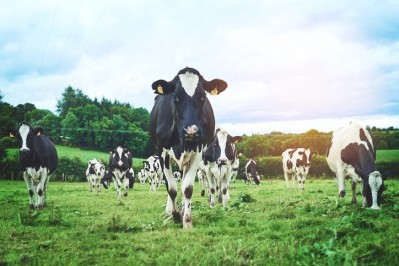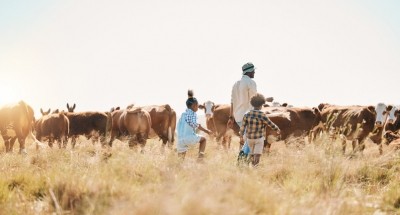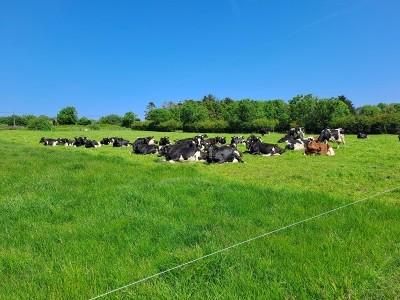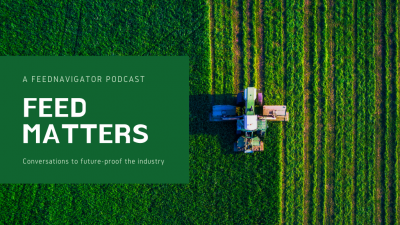Ireland urged to use additives to cut enteric methane in dairy cows
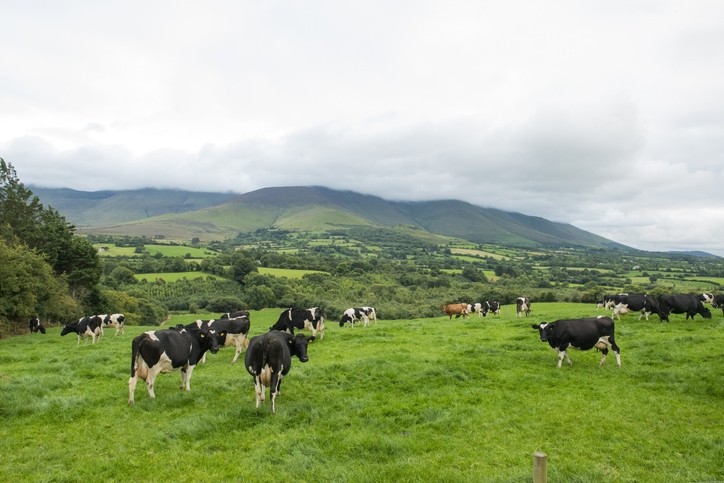
Irish farmers also need access to sufficient supplies of greener forms of fertiliser, stressed the publication.
In its annual review 2023, published last week, the Climate Change Advisory Council (CCAC) warns that, at the current rate of policy implementation, Ireland will fail to meet its climate targets.
Country at risk of falling behind on targets
“The Council is concerned that the necessary national actions are not taking place or being enabled at the speed and with the level of coordination across government and society that is required.
“Ireland’s first task is to reduce and ultimately prevent emissions of greenhouse gases (GHG). To support this there must be effective and consistent engagement with communities, ensuring there is a fair and equitable transition, while building and maintaining public support and action.”
The Climate Action and Low Carbon Development (Amendment) Act 2021 sets out the legal framework for Ireland’s transition to a climate-resilient, biodiversity-rich, environmentally sustainable, and climate-neutral economy by 2050.
Feed additives
The Irish government, according to the Council, should “ensure a rapid uptake of the proven and effective mitigation measures across the agricultural sector. These include a reduction in the average finishing age of cattle of three months; replacing 90% of calcium ammonium nitrate fertiliser and 100% of straight urea with protected urea; the use of feed additives to reduce enteric methane in dairy cows and the uptake of diversification options to displace 140,000 livestock units.”
This will require providing appropriate incentives and support including advisory services, training, and resources, stressed the Council.
“There is ongoing work on the potential for feed additives, including 3-NOP, to reduce methane emissions from ruminant livestock. The need to reduce methane emissions from cattle is urgent. The alternative is a significant reduction in the number of ruminant animals. This would have a major adverse financial and social impact on Ireland. Thus, there is a huge potential return on this research if the products are successful and deployable at scale in Ireland.”
The report highlighted though that while feed additive products have been shown to be effective in housed livestock systems, a mechanism for their use with grazing livestock has not been demonstrated.
As with protected urea, the CCAC believes the government has a role to play in supporting the establishment of a supply chain for the rapid deployment of these emerging technologies. “In this situation, waiting for the ‘perfect’ solution risks delaying the emission reductions that can be achieved. Consideration should be given to deploying proven feed additives during the period when livestock are housed.”
‘Unprecedented' climate events
Each year the Council reviews the progress Ireland has made during the immediately preceding year regarding the country’s national climate aims, and how it is complying with EU and international obligations related to climate action. This time out, it noted the "unprecedented" climate events of spring and summer 2023.
“Multiple global and local records were broken including the warmest daily temperature ever recorded on July 7, following the warmest June ever recorded.
“Average sea surface temperatures reached unprecedented levels for June. Temperatures will continue to increase until significant action is taken. This will lead to more extreme weather events in Ireland such as heatwaves, droughts, storms, and flooding.”
Research projects
The recently published marginal abatement cost curve from Teagasc, the state agency providing research, advisory and education in agriculture, horticulture, food, and rural development in Ireland, identifies pathways to meet the target set for Irish farmers of a 25% reduction in emissions from 2018 levels by 2030.
The agency launched its Climate Action Strategy in 2022 to support farmers and the industry to respond to the challenge of climate change.
Research projects are under way at Teagasc and universities aimed at developing new technologies to reduce emissions, improve the national inventory and reduce the uncertainty in the land use sector. One program led by that agency in collaboration with 62 partners is demonstrating on farms the technologies, efficiencies and system changes that farmers can introduce to improve sustainability.
Meanwhile, the National Economic and Social Council (NESC) report, Just Transition in Agriculture and Land Use, published in June, outlines how the agriculture and land use sector can increasingly be a part of the solution to address urgent climate change and biodiversity loss.
